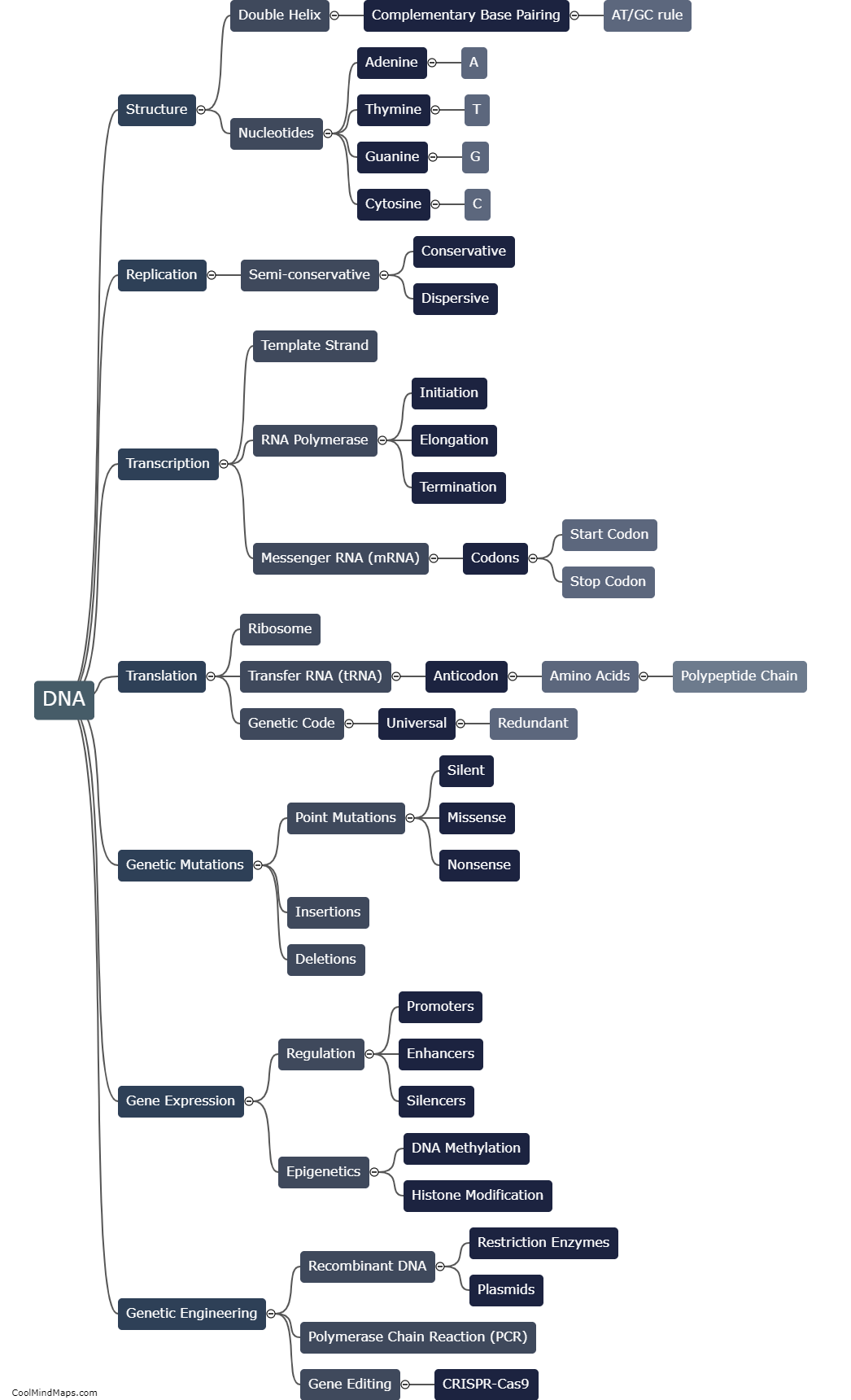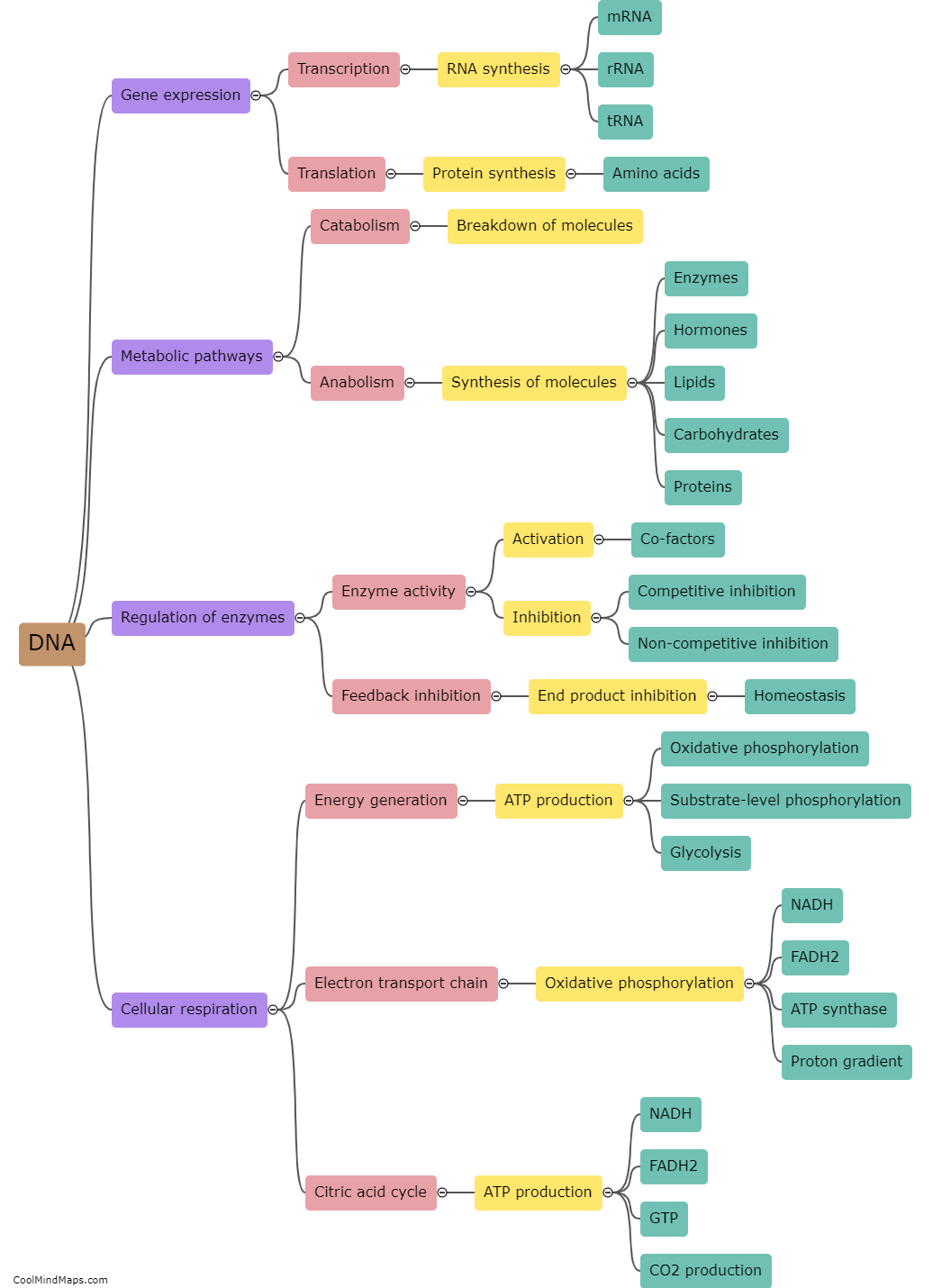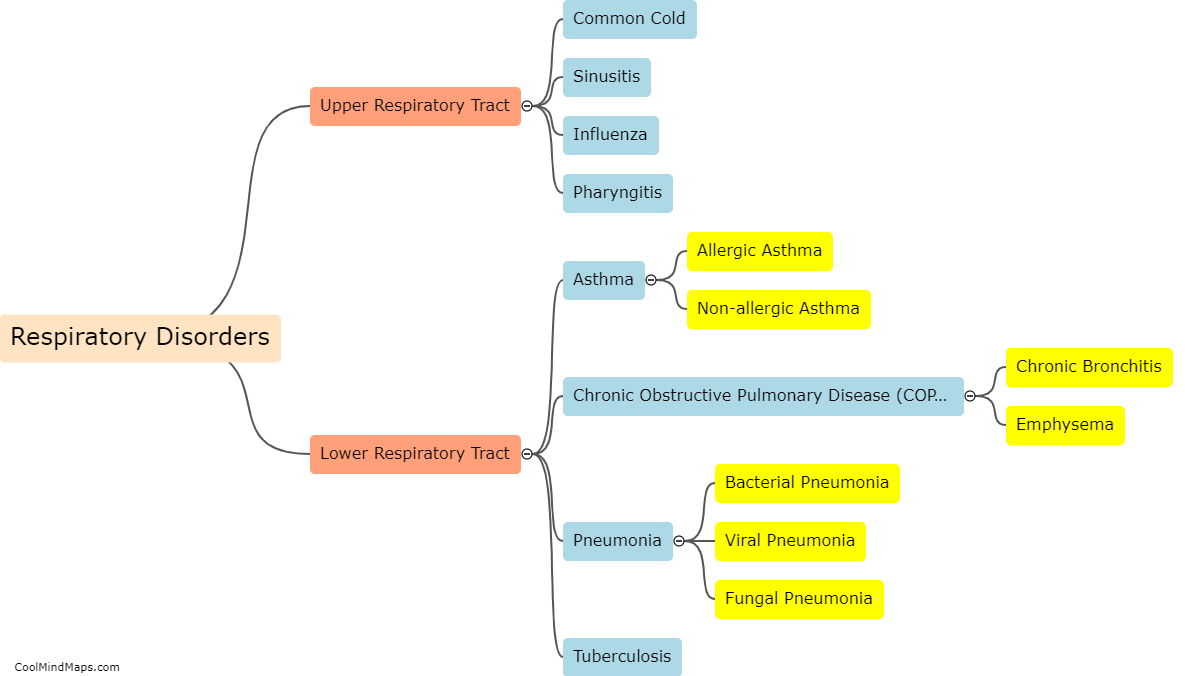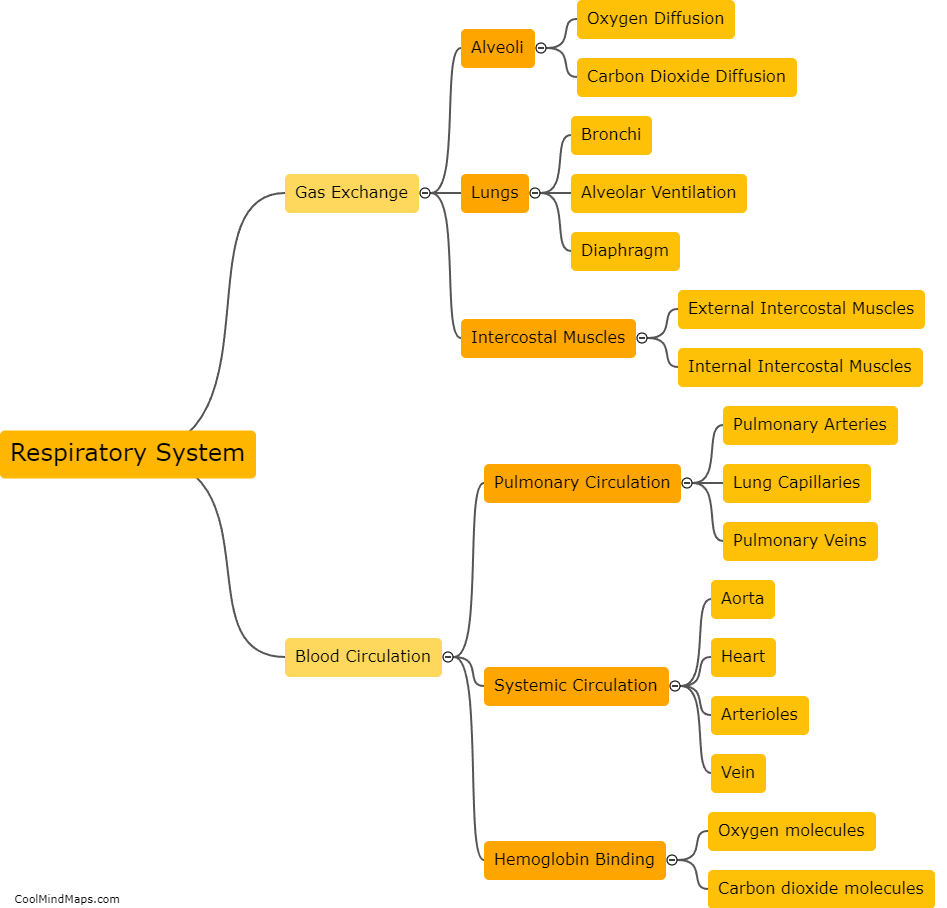What is the impact of genetic variations on immune responses?
Genetic variations play a significant role in determining the strength and effectiveness of an individual's immune response. These variations can affect various components of the immune system, including the production of immune cells, the recognition and response to pathogens, and the regulation of immune responses. Certain genetic variations can enhance immune responses, leading to heightened defense against infections, while others can impair immune function, making individuals more susceptible to infections or autoimmune diseases. Additionally, genetic variations can influence the effectiveness of vaccinations and the development of immune-related disorders. Understanding the impact of genetic variations on immune responses is crucial for personalized medicine and the development of targeted therapies to optimize immune function and improve overall health outcomes.
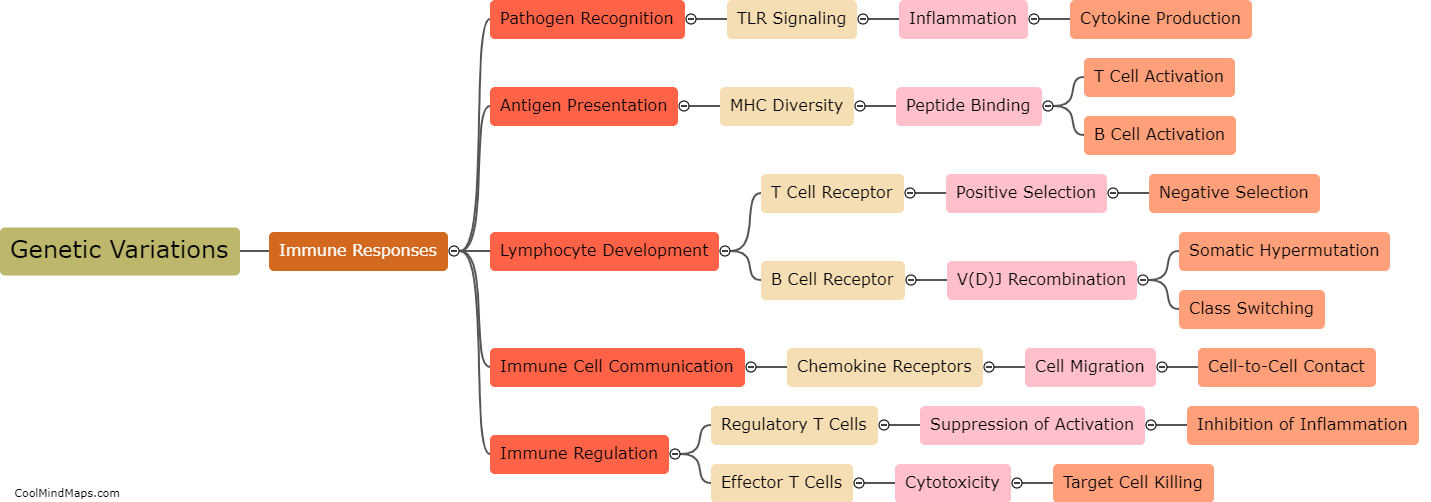
This mind map was published on 22 November 2023 and has been viewed 92 times.




